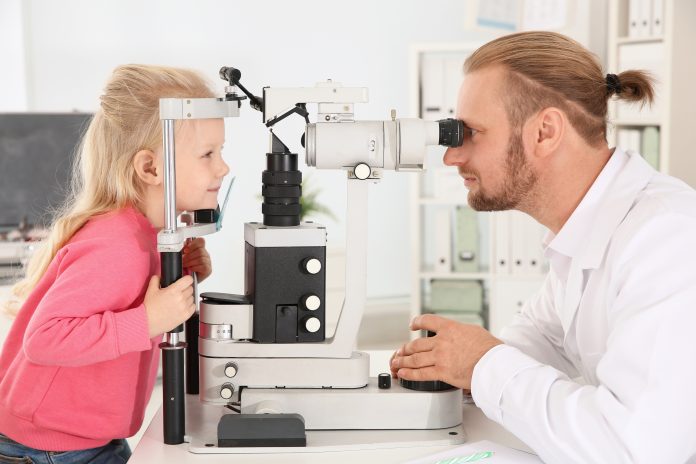Max Halford, Clinical Lead at the Association of British Dispensing Opticians, discusses the impact of the pandemic on children’s eyesight across the UK
The pandemic has brought many challenges for people to deal with, some very much in the moment and others we are still facing. One of the future concerns may well be around the effects of the pandemic and, in particular, lockdown on children’s vision.
Across the world, over a billion people live with some form of sight loss which has huge personal and economic impact on the people and societies affected. The fact that it is estimated over 90% of this sight loss is avoidable brings into focus the importance of access to high-quality eye health for everyone.
In the UK, children under 16 are entitled to NHS funded sight tests and provision of spectacles if required via a voucher system. In most areas, a children’s vision screening service operates to screen pre-school/early school-age children. However, during the pandemic many of these services either halted or in the case of high street opticians practices, moved to an “Essential and Urgent” service only.
Although these restrictions were lifted in November 2020, a recent UK survey by YouGov on behalf of the international eye care charity Orbis showed some rather stark responses. 54% of parents have not booked a sight test for their child since the start of the pandemic and many (70% of those surveyed) were not aware of the NHS recommendations that children should have a sight test at the age of four or five and then regularly after this.
The crucial issue is that vision develops even up into the late teens and early twenties. Problems with vision that are detected early on have a much higher chance of successful treatment. If visual problems are missed in the early years, then any “lost vision” may be difficult to recoup later on.
Myopia: Short-sightedness
Eyecare professionals are also concerned about the rising numbers of children with myopia, also known as short-sightedness. This has also reached pandemic proportions with studies predicting up to 50% of the world’s population, five billion people, being myopic by 2050.
Myopia brings with it not just the need to wear spectacles or contact lenses in many cases, but a higher risk of serious eye conditions later in life if myopic progression is not addressed at an early age. Therefore, the reduction in children attending routine eye testing is a serious public health concern across many countries.
“Across the world, over a billion people live with some form of sight loss which has huge personal and economic impact on the people and societies affected. The fact that it is estimated over 90% of this sight loss is avoidable brings into focus the importance of access to high- quality eye health for everyone.”
An added concern is that one of the triggers for increasing myopia is the lack of time spent outdoors in the early years. The evidence is that children need to spend sufficient time outdoors every day to maximise their visual potential – children raised in cities are more likely to be myopic than those raised in the countryside. Clearly, during the pandemic and the lockdown phases, the opportunity for children to attend school or to visit a local park to play was much reduced. Early studies are indicating this has had an effect on myopia progression and been detrimental to overall eye health. The recommendation is for at least two hours of outdoor time, during daylight hours, per day for a child.
Caring for the eye health of children
In the UK, eye care professionals can be relatively easily accessed at high street optician practices with optometrists and dispensing opticians both having qualifications and registration that allow them to care for the eye health of children, be that sight testing or the dispensing of glasses. No unregistered person can be involved in the supply of glasses to children without supervision by a registered optometrist or dispensing optician.
References:
- Nearly 3 in 5 not had routine eye test in past year, Orbis, October 2021, https://gbr.orbis.org/en/news/2021/nearly-3-in-5-not-had-routine-eye- test-in-past-year-with-gen-x-baby-boomers-most-at-risk-of-vision-loss [accessed 19th October 2021].
- Zhang X, Cheung SSL, Chan H, et al. Myopia incidence and lifestyle changes among school children during the COVID-19 pandemic: a population-based prospective study. British Journal of Ophthalmology Published Online First: 2nd August 2021. doi: 10.1136/bjophthalmol- 2021-319307.











